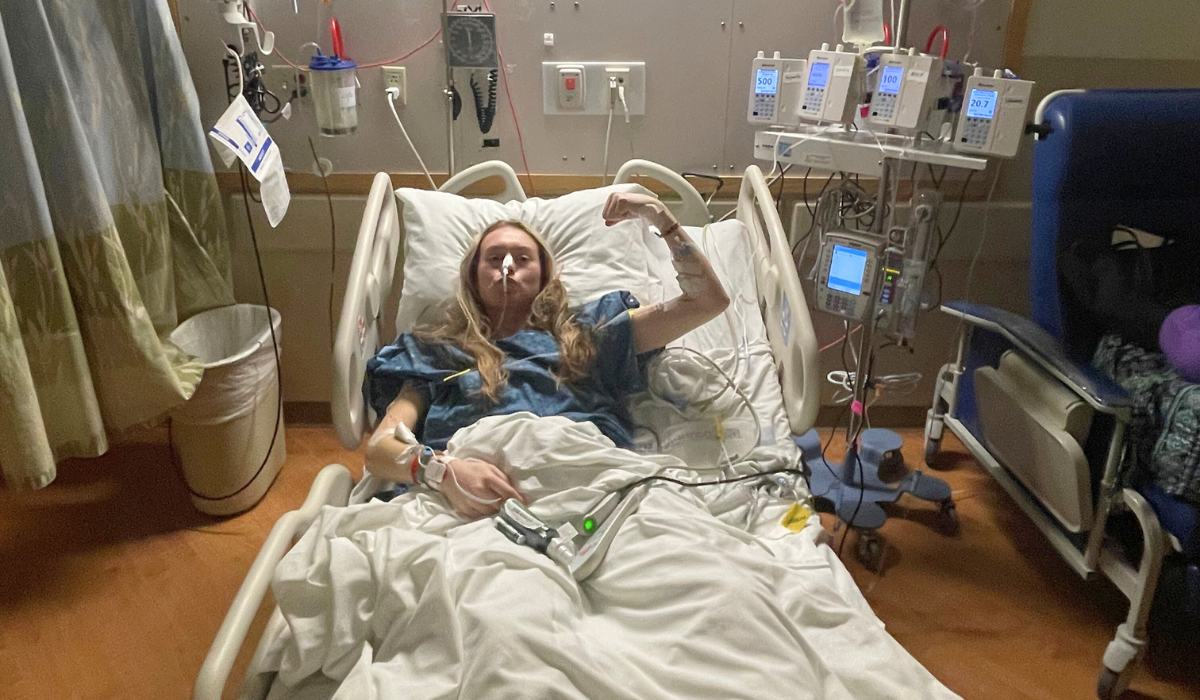About Chronic Pancreatitis
Are you or someone you love affected by chronic pancreatitis or recurrent acute pancreatitis? Then this guide is for you. Here, you can find helpful information about what it means to live with and manage pancreatitis, and learn about our efforts to find a cure.

What is Chronic Pancreatitis?
Chronic pancreatitis (CP) is a serious condition where the pancreas is inflamed (swollen). This inflammation causes scarring of the pancreas. As a result, the pancreas no longer works properly, causing problems with digestion and leading to complications such as diabetes and bone disease.
Chronic pancreatitis is a rare disease that affects about 200,000 Americans and an estimated one million people worldwide. Chronic pancreatitis affects both adults and children (pediatric pancreatitis) and can affect people of all races and ethnicities.
Currently, there is no effective treatment for people suffering from chronic pancreatitis, but there is hope. Top pancreatic experts believe a well-funded, coordinated research and development program could lead to effective treatments. Mission: Cure is working to make that happen.
Chronic Pancreatitis vs. Recurrent Acute Pancreatitis
Recurrent acute pancreatitis (RAP) is characterized by two or more episodes of acute inflammation of the pancreas, in which the patient completely recovers between episodes. Unlike in chronic pancreatitis, there may be no permanent damage or scarring to the pancreas. People with recurrent acute pancreatitis may have further problems similar to people with chronic pancreatitis, and they are more at risk of developing chronic pancreatitis.
Learn about Pancreatitis
About the Pancreas
The pancreas is an organ that plays an important role in your digestive system and is part of your gut (gastrointestinal tract). It helps break down food as we eat and turn it into energy for our cells.
Causes & Symptoms
There is usually not just one factor causing chronic pancreatitis. Rather, research suggests that chronic pancreatitis is caused by a combination of lifestyle, environmental, and genetic factors.
Diagnosis
To diagnose chronic pancreatitis, doctors need to consider a patient’s medical history and symptoms, and rule out other possible conditions (this process is called differential diagnosis).
Genetics
Genetic variants, meaning changes in the DNA (sometimes called mutations), can cause or contribute to pancreatitis. If several people in the same family have pancreatitis, it can be considered hereditary or familial pancreatitis.
Alcohol
After a pancreatitis attack, doctors usually ask patients about how much alcohol they drink. But what if you don’t drink alcohol or only drink a little bit? Unfortunately, many patients tell us that the doctors and nurses don’t believe them. Thankfully, new research shows that drinking alcohol does not directly cause chronic pancreatitis, and other factors (like genetics) may play a bigger role.
Pediatric
While pancreatitis most commonly affects adults, children can suffer from the disease too. Each year, 12 in 100,000 children suffer from pancreatitis, and 2 in 100,000 are diagnosed with chronic pancreatitis.
Managing Pancreatitis
Learn more about nutrition, pain management, Pancreatic Enzyme Replacement Therapy (PERT), and Total Pancreatectomy with Islet Autotransplantation (TPIAT).
Complications of Pancreatitis
Learn more about Exocrine Pancreatic Insufficiency (EPI), Type 3c Diabetes (Pancreatogenic Diabetes), Nurtional Deficiences, Bone Disease, and Pancreatic Cancer.
Patient Resources
Mission: Cure’s resource hub is here to help patients navigate life with chronic pancreatitis. Our resource hub includes:
- Webinars
- Videos
- Toolkits
- Pancreatitis Patient Stories
- Pancreatitis Support Groups
- Patient Advocacy Resources
- Pediatric Resources
- Information on PERT Savings Programs
- Clinical Trials
We work with a dedicated team of doctors, researchers, and experts in pancreatitis patient care to bring these resources to life. The best way to stay up-to-date on new resources from Mission: Cure is by signing up for our email newsletter.
Our Strategy
The world’s top pancreatic experts believe a well-funded, coordinated research and development program could lead to effective treatments for chronic pancreatitis. Mission: Cure is working to make that happen.
Since our founding in 2017, we have worked hard to advance effective treatments for pancreatitis, with the goal of developing a cure:
- Developed Best-Practices Care Protocol for holistic pancreatitis care, vetted by top experts
- Worked with 8 companies to develop therapies for pancreatitis after decades without progress
- Brought over 3,000 patients, caregivers, scientists, and advocates together to search for a cure
- Identified 60 potential drug repurposing candidates that have evidence of action on pancreatitis targets
- Held patient-focused drug development meeting with FDA & contributed to the Voice of the Patient Report
- Organized & led a patient panel at National Institutes of Health (NIH) meeting to expedite therapies for pancreatitis
- And More!
We envision a future where all pancreatitis patients can prevent or treat their disease so they are no longer in pain and can live longer, healthier, more productive lives.
We believe this future is possible. Will you believe with us?
